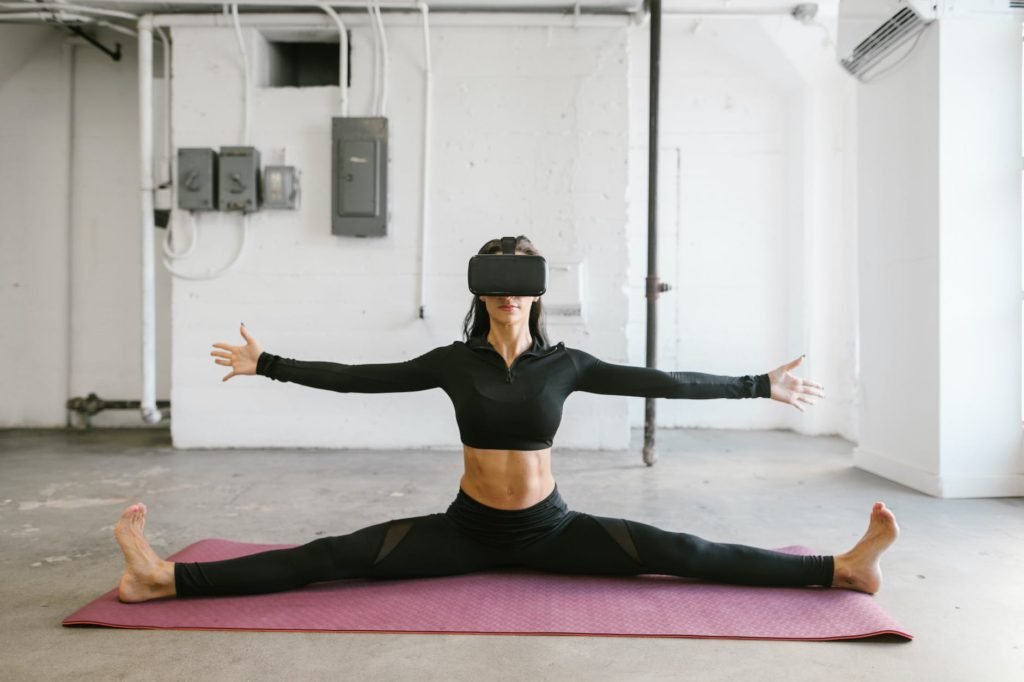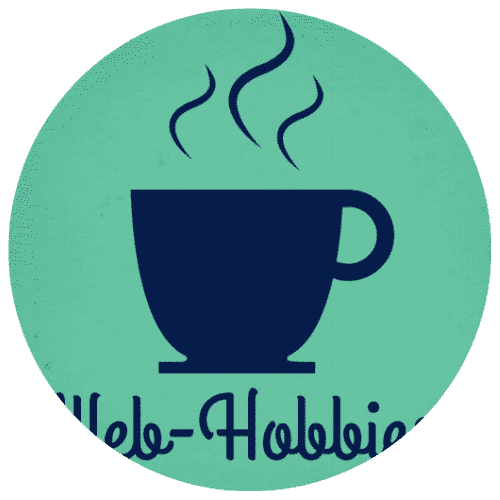
ChatGPT, or the generative pre-trained transformer, is a cutting-edge artificial intelligence technology that has the ability to generate human-like text. It has been trained on a massive dataset of text, allowing it to understand language and generate text that is coherent, natural, and often indistinguishable from text written by a human.
In this post, we will explore 26 creative use cases for chat gpt and how you can best utilize this technology to enhance your business or creative endeavors.
Top 26 Life-changing ChatGPT Use-Cases
Use Case #1: Generating Unique and Engaging Content for Social Media Platforms
Social media platforms are constantly flooded with content, making it increasingly difficult to stand out. ChatGPT can be used to generate unique and engaging content that is tailored to the target audience. Whether it’s a witty caption for an Instagram post or an engaging tweet, ChatGPT can be used to generate creative and attention-grabbing content that will help you stand out on social media.
Best Practices:
- Use ChatGPT to generate unique and engaging content that is tailored to the target audience.
- Utilize social media analytics tools to understand the audience and generate content that is relevant to them.
- Experiment with different types of content, such as videos, images, and GIFs, to see what resonates best with the audience.
Use Case #2: Generating Personalized Responses to Customer Inquiries in Customer Service Chatbots
Customer service chatbots are becoming increasingly popular as a way to provide quick and efficient customer service. ChatGPT can be used to generate personalized responses to customer inquiries in customer service chatbots. By analyzing the customer’s inquiry, ChatGPT can generate a response that is tailored to the specific issue and provides helpful information.
Best Practices:
Use ChatGPT to generate personalized responses to customer inquiries in customer service chatbots.
Utilize customer data, such as past inquiries, to generate the most relevant responses.
Test and refine the responses regularly to ensure they are accurate and helpful.
Use Case #3: Generating Personalized Emails for Marketing Campaigns
Personalized emails are more effective than generic ones, as they are tailored to the individual recipient’s interests and preferences. ChatGPT can be used to generate personalized emails for marketing campaigns that are tailored to the individual recipient. By analyzing the recipient’s browsing and purchasing history, ChatGPT can generate an email that is relevant and personalized to the individual.
Best Practices:
Use ChatGPT to generate personalized emails for marketing campaigns that are tailored to the individual recipient.
Utilize customer data, such as browsing and purchasing history, to generate the most relevant emails.
Test and refine the emails regularly to ensure they are effective.
Use Case #4: Generating Unique and Compelling Headlines for News Articles
Headlines are crucial for capturing the attention of readers and driving traffic to news articles. ChatGPT can be used to generate unique and compelling headlines for news articles that grab the reader’s attention and entice them to read the article. By analyzing the article’s content and understanding the target audience, ChatGPT can generate headlines that are both creative and informative.
Best Practices:
Use ChatGPT to generate unique and compelling headlines for news articles.
Utilize data on trending topics and the target audience to generate headlines that are relevant and attention-grabbing.
Experiment with different headline formats, such as questions or statements, to see what resonates best with the audience.
Use Case #5: Generating Personalized Workout Plans for Fitness Apps
Fitness apps have become increasingly popular as a way to stay in shape, but creating personalized workout plans can be time-consuming and difficult. ChatGPT can be used to generate personalized workout plans for fitness apps that are tailored to the individual user’s fitness level, goals, and preferences. By analyzing user data, ChatGPT can generate workout plans that are effective and personalized to the individual.
Best Practices:
Use ChatGPT to generate personalized workout plans for fitness apps.
Utilize user data, such as fitness level, goals, and preferences, to generate the most relevant workout plans.
Test and refine the workout plans regularly to ensure they are effective.
Use Case #6: Generating Unique and Creative Recipes for Cooking Apps
Cooking apps have become increasingly popular as a way to learn new recipes and experiment with different ingredients. ChatGPT can be used to generate unique and creative recipes for cooking apps that are tailored to the individual user’s preferences and dietary restrictions. By analyzing user data, ChatGPT can generate recipes that are both delicious and personalized to the individual.
Best Practices:
Use ChatGPT to generate unique and creative recipes for cooking apps.
Utilize user data, such as dietary restrictions and preferences, to generate the most relevant recipes.
Test and refine the recipes regularly to ensure they are delicious and easy to follow.
Use Case #7: Generating Personalized Travel Itineraries for Travel Websites
Planning a trip can be overwhelming and time-consuming, but ChatGPT can make it easier. ChatGPT can be used to generate personalized travel itineraries for travel websites that are tailored to the individual user’s interests and preferences. By analyzing user data, ChatGPT can generate itineraries that are both creative and personalized to the individual.
Best Practices:
Use ChatGPT to generate personalized travel itineraries for travel websites.
Utilize user data, such as interests and preferences, to generate the most relevant itineraries.
Test and refine the itineraries regularly to ensure they are effective.
Use Case #8: Generating Unique and Interesting Plot Twists for Writing Prompts
Writing can be a challenging and time-consuming task, but ChatGPT can make it easier. ChatGPT can be used to generate unique and interesting plot twists for writing prompts that add depth and complexity to the story. By analyzing the story’s content and understanding the target audience, ChatGPT can generate plot twists that are both creative and captivating.
Best Practices:
Use ChatGPT to generate unique and interesting plot twists for writing prompts.
Utilize data on trending topics and the target audience to generate plot twists that are relevant and captivating.
Experiment with different plot twists, such as unexpected twists or surprises, to see what resonates best with the audience.
Use Case #9: Generating Personalized Song Lyrics for Music Production Software
Music production software has made it easier for anyone to create their own music, but writing lyrics can be a challenging task. ChatGPT can be used to generate personalized song lyrics for music production software that are tailored to the individual user’s preferences and style. By analyzing user data, ChatGPT can generate lyrics that are both creative and personalized to the individual.
Best Practices:
Use ChatGPT to generate personalized song lyrics for music production software.
Utilize user data, such as preferred musical style and themes, to generate the most relevant lyrics.
Test and refine the lyrics regularly to ensure they are effective and match the musical style.

Use Case #10: Generating Unique and Compelling Product Descriptions for Online Marketplaces
Online marketplaces are constantly flooded with products, making it increasingly difficult to stand out. ChatGPT can be used to generate unique and compelling product descriptions for online marketplaces that grab the reader’s attention and entice them to purchase the product. By analyzing the product’s features and understanding the target audience, ChatGPT can generate product descriptions that are both creative and informative.
Best Practices:
Use ChatGPT to generate unique and compelling product descriptions for online marketplaces.
Utilize product data, such as features and benefits, to generate the most relevant product descriptions.
Experiment with different formats, such as bullet points or storytelling, to see what resonates best with the audience.
Use Case #11: Generating Personalized Financial Advice for Investment Apps
Investment apps have become increasingly popular as a way to manage finances, but creating personalized financial advice can be difficult. ChatGPT can be used to generate personalized financial advice for investment apps that are tailored to the individual user’s investment goals and risk tolerance. By analyzing user data, ChatGPT can generate advice that is both effective and personalized to the individual.
Best Practices:
Use ChatGPT to generate personalized financial advice for investment apps.
Utilize user data, such as investment goals and risk tolerance, to generate the most relevant advice.
Test and refine the advice regularly to ensure it is accurate and effective.
Use Case #12: Generating Unique and Engaging Dialogue for Video Game NPCs
Creating engaging and believable dialogue for non-player characters (NPCs) in video games can be a challenging task. ChatGPT can be used to generate unique and engaging dialogue for video game NPCs that is tailored to the individual NPC’s personality and role in the game. By analyzing NPC data, ChatGPT can generate dialogue that is both creative and believable.
Best Practices:
Use ChatGPT to generate unique and engaging dialogue for video game NPCs.
Utilize NPC data, such as personality and role in the game, to generate the most relevant dialogue.
Test and refine the dialogue regularly to ensure it is accurate and effective.
Use Case #13: Generating Personalized Workout Routines for Fitness Apps
Creating personalized workout routines can be time-consuming and difficult, but ChatGPT can make it easier. ChatGPT can be used to generate personalized workout routines for fitness apps that are tailored to the individual user’s fitness level, goals, and preferences. By analyzing user data, ChatGPT can generate workout routines that are effective and personalized to the individual.
Best Practices:
Use ChatGPT to generate personalized workout routines for fitness apps.
Utilize user data, such as fitness level, goals, and preferences, to generate the most relevant workout routines.
Use Case #14: Generating Unique and Creative Product Names for Startups
Creating a catchy and memorable product name is crucial for any startup looking to stand out in a crowded marketplace. ChatGPT can be used to generate unique and creative product names that are tailored to the product and the target audience. By analyzing the product’s features and understanding the target audience, ChatGPT can generate product names that are both creative and memorable.
Best Practices:
Use ChatGPT to generate unique and creative product names for startups.
Utilize product data, such as features and target audience, to generate the most relevant product names.
Experiment with different formats, such as puns or alliteration, to see what resonates best with the audience.
Use Case #15: Generating Personalized Fashion Recommendations for Online Clothing Retailers
Online clothing retailers are constantly flooded with new fashion trends, making it increasingly difficult to stand out.
ChatGPT can be used to generate personalized fashion recommendations for online clothing retailers that are tailored to the individual customer’s preferences and style.
By analyzing customer data, ChatGPT can generate recommendations that are both creative and personalized to the individual.
Best Practices:
Use ChatGPT to generate personalized fashion recommendations for online clothing retailers.
Utilize customer data, such as preferences and style, to generate the most relevant recommendations.
Test and refine the recommendations regularly to ensure they are accurate and effective.
Use Case #16: Generating Unique and Interesting Story Ideas for Writers
Writing can be a challenging and time-consuming task, but ChatGPT can make it easier. ChatGPT can be used to generate unique and interesting story ideas that are tailored to the writer’s preferences and style.
By analyzing the writer’s past work and understanding the target audience, ChatGPT can generate story ideas that are both creative and captivating.
Best Practices:
Use ChatGPT to generate unique and interesting story ideas for writers.
Utilize data on trending topics and the target audience to generate story ideas that are relevant and captivating.
Experiment with different formats, such as short stories or novellas, to see what resonates best with the audience.
Use Case #17: Generating Personalized Learning Plans for Educational Apps
Educational apps have become increasingly popular as a way to learn new skills, but creating personalized learning plans can be time-consuming and difficult.
ChatGPT can be used to generate personalized learning plans for educational apps that are tailored to the individual user’s learning style and goals.
By analyzing user data, ChatGPT can generate learning plans that are effective and personalized to the individual.
Best Practices:
Use ChatGPT to generate personalized learning plans for educational apps.
Utilize user data, such as learning style and goals, to generate the most relevant learning plans.
Test and refine the learning plans regularly to ensure they are effective.
Use Case #18: Generating Unique and Compelling Product Reviews for E-commerce Websites
Product reviews are crucial for driving sales and building trust with customers on e-commerce websites.
ChatGPT can be used to generate unique and compelling product reviews that are tailored to the individual product and target audience.
By analyzing the product’s features and understanding the target audience, ChatGPT can generate reviews that are both creative and informative.
Best Practices:
Use ChatGPT to generate unique and compelling product reviews for e-commerce websites.
Utilize product data, such as features and target audience, to generate the most relevant reviews.
Test and refine the reviews regularly to ensure they are accurate and effective.
Use Case #19: Generating Personalized Workout Plans for Gym Members
Creating personalized workout plans for gym members can be time-consuming and difficult, but ChatGPT can make it easier.
ChatGPT can be used to generate personalized workout plans that are tailored to the individual member’s fitness level, goals, and preferences.
By analyzing member data, ChatGPT can generate workout plans that are effective and personalized to the individual.
Best Practices:
Use ChatGPT to generate personalized workout plans for gym members.
Utilize member data, such as fitness level, goals, and preferences, to generate the most relevant workout plans.
Test and refine the workout plans regularly to ensure they are effective.

Use Case #20: Generating Unique and Creative Product Names for Startups
Creating a catchy and memorable product name is crucial for any startup looking to stand out in a crowded marketplace.
ChatGPT can be used to generate unique and creative product names that are tailored to the product and the target audience.
By analyzing the product’s features and understanding the target audience, ChatGPT can generate product names that are both creative and memorable.
Best Practices:
Use ChatGPT to generate unique and creative product names for startups.
Utilize product data, such as features and target audience, to generate the most relevant product names.
Experiment with different formats, such as puns or alliteration, to see what resonates best with the audience.
Use Case #21: Generating Personalized Fashion Recommendations for Online Clothing Retailers
Online clothing retailers are constantly flooded with new fashion trends, making it increasingly difficult to stand out.
ChatGPT can be used to generate personalized fashion recommendations for online clothing retailers that are tailored to the individual customer’s preferences and style.
By analyzing customer data, ChatGPT can generate recommendations that are both creative and personalized to the individual.
Best Practices:
Use ChatGPT to generate personalized fashion recommendations for online clothing retailers.
Utilize customer data, such as preferences and style, to generate the most relevant recommendations.
Test and refine the recommendations regularly to ensure they are accurate and effective.
Use Case #22: Generating Unique and Interesting Story Ideas for Writers
Writing can be a challenging and time-consuming task, but ChatGPT can make it easier.
ChatGPT can be used to generate unique and interesting story ideas that are tailored to the writer’s preferences and style.
By analyzing the writer’s past work and understanding the target audience, ChatGPT can generate story ideas that are both creative and captivating.
Best Practices:
Use ChatGPT to generate unique and interesting story ideas for writers.
Utilize data on trending topics and the target audience to generate story ideas that are relevant and captivating.
Experiment with different formats, such as short stories or novellas, to see what resonates best with the audience.
Use Case #23: Generating Personalized Learning Plans for Educational Apps
Educational apps have become increasingly popular as a way to learn new skills, but creating personalized learning plans can be time-consuming and difficult.
ChatGPT can be used to generate personalized learning plans for educational apps that are tailored to the individual user’s learning style and goals.
By analyzing user data, ChatGPT can generate learning plans that are effective and personalized to the individual.
Best Practices:
Use ChatGPT to generate personalized learning plans for educational apps.
Utilize user data, such as learning style and goals, to generate the most relevant learning plans.
Test and refine the learning plans regularly to ensure they are effective.
Use Case #24: Generating Unique and Compelling Product Reviews for E-commerce Websites
Product reviews are crucial for driving sales and building trust with customers on e-commerce websites.
ChatGPT can be used to generate unique and compelling product reviews that are tailored to the individual product and target audience.
By analyzing the product’s features and understanding the target audience, ChatGPT can generate reviews that are both creative and informative.
Best Practices:
Use ChatGPT to generate unique and compelling product reviews for e-commerce websites.
Utilize product data, such as features and target audience, to generate the most relevant reviews.
Test and refine the reviews regularly to ensure they are accurate and effective.
Use Case #25: Generating Personalized Yoga Routines for Yoga Apps
Creating personalized yoga routines can be time-consuming and difficult, but ChatGPT can make it easier.
ChatGPT can be used to generate personalized yoga routines for yoga apps that are tailored to the individual user’s fitness level, goals, and preferences.
By analyzing user data, ChatGPT can generate yoga routines that are effective and personalized to the individual.
Best Practices:
Use ChatGPT to generate personalized yoga routines for yoga apps.
Utilize user data, such as fitness level, goals, and preferences, to generate the most relevant yoga routines.
Test and refine the yoga routines regularly to ensure they are effective.
Use Case #26: Generating Unique and Compelling Marketing Copy for Businesses
Creating effective and compelling marketing copy is crucial for any business looking to stand out in a crowded marketplace. ChatGPT can be used to generate unique and compelling marketing copy that is tailored to the business and the target audience. By analyzing the business’s products and services and understanding the target audience, ChatGPT can generate marketing copy that is both creative and informative.
Best Practices:
Use ChatGPT to generate unique and compelling marketing copy for businesses.
Utilize business data, such as products and services, to generate the most relevant marketing copy.
Experiment with different formats, such as storytelling or persuasive language, to see what resonates best with the audience.
Final Thought
In conclusion, ChatGPT has a wide range of use cases that can benefit businesses and individuals in various fields.
From generating personalized workout plans for fitness apps to creating unique and compelling marketing copy for businesses, ChatGPT can help make tasks more efficient and effective. By utilizing user data and understanding the target audience, ChatGPT can generate personalized and creative content that stands out in a crowded marketplace.
